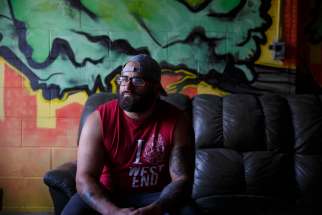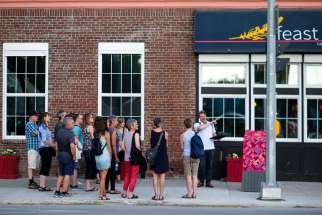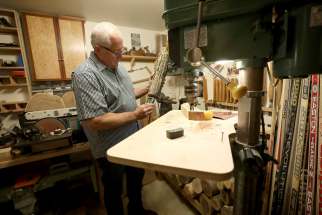Manitoba hasn’t tapped 82% of special crime fund
Read this article for free:
or
Already have an account? Log in here »
To continue reading, please subscribe:
Monthly Digital Subscription
$0 for the first 4 weeks*
- Enjoy unlimited reading on winnipegfreepress.com
- Read the E-Edition, our digital replica newspaper
- Access News Break, our award-winning app
- Play interactive puzzles
*No charge for 4 weeks then price increases to the regular rate of $19.00 plus GST every four weeks. Offer available to new and qualified returning subscribers only. Cancel any time.
Monthly Digital Subscription
$4.75/week*
- Enjoy unlimited reading on winnipegfreepress.com
- Read the E-Edition, our digital replica newspaper
- Access News Break, our award-winning app
- Play interactive puzzles
*Billed as $19 plus GST every four weeks. Cancel any time.
To continue reading, please subscribe:
Add Free Press access to your Brandon Sun subscription for only an additional
$1 for the first 4 weeks*
*Your next subscription payment will increase by $1.00 and you will be charged $16.99 plus GST for four weeks. After four weeks, your payment will increase to $23.99 plus GST every four weeks.
Read unlimited articles for free today:
or
Already have an account? Log in here »
Hey there, time traveller!
This article was published 20/06/2019 (2367 days ago), so information in it may no longer be current.
OTTAWA — With Winnipeg reporting the highest percentage of gang-related homicides in the country, a local advocate says Manitoba needs to hurry up and claim its millions of dollars in federal prevention funds.
Top cop dismisses handgun bans
Police Chief Danny Smyth says a federal proposal to let cities ban handguns would not be helpful for Winnipeg.
This week, federal Crime Reduction Minister Bill Blair told the Toronto Star the Liberals will campaign this fall on a platform to allow cities to put restrictions on handguns, such as beefing up secure-storage rules.
Police Chief Danny Smyth says a federal proposal to let cities ban handguns would not be helpful for Winnipeg.
This week, federal Crime Reduction Minister Bill Blair told the Toronto Star the Liberals will campaign this fall on a platform to allow cities to put restrictions on handguns, such as beefing up secure-storage rules.
City councils for Montreal and Toronto have voted to ban or restrict firearms, despite not having the jurisdiction to do so. Winnipeg’s city council hasn’t raised the issue lately, and Smyth said it wouldn’t be helpful.
“Although there have been some handguns that we’ve encountered. I haven’t found them to be a huge source of problem,” Smyth told this newspaper on Tuesday.
“Most of the guns (in Winnipeg) have been altered long guns – sawed-off shotguns, sawed-off rifles is the majority of what we’re encountering.”
Smyth said Ottawa should look at beefing up rules on how people store their guns to avoid theft, or cracking down on “straw purchases,” where someone legally buys a gun on behalf of someone not authorized to do so.
—Aldo Santin and Dylan Robertson
“The community could really use that funding for grassroots solutions to the gang issues in Manitoba, or in Winnipeg,” said Sean Sousa, co-ordinator of the Gang Action Interagency Network.
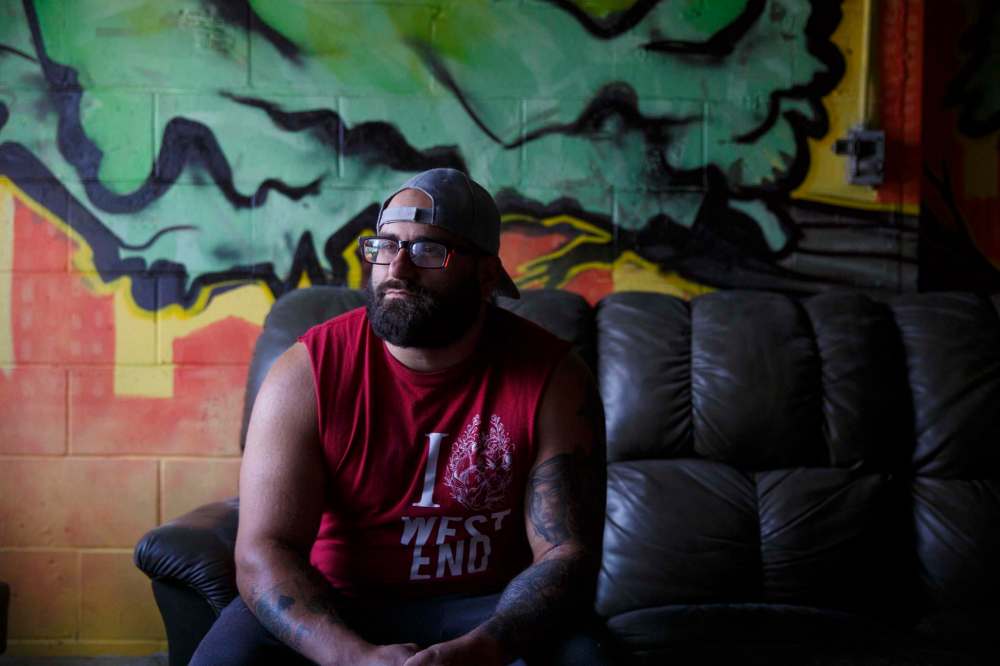
In April, the Pallister government signed on to access $2.3 million of its $13 million allocation under the Liberals’ Gun and Gang Violence Action Fund, meant to address a rise in gun-related crime in Canadian cities.
Most of that cash is going to programs to help police track and trace firearms.
The funding represents less than 18 per cent of Manitoba’s allocation, compared with the 92 per cent of its allocation that Saskatchewan picked up in March.
The province said Wednesday it aims to take up the rest of its funding this summer.
Winnipeg leads large Canadian cities in the rate of gang-related homicides in 2017, the most recent year reported by Statistics Canada.
Some 46 per cent of homicides in Winnipeg in 2017 were gang-related — 11 of 24, according to police-reported data. For Canada’s 11 largest cities, an average of 33 per cent of homicides were gang-related.
In 2016, Winnipeg had the second highest per-capita rate of violent crimes involving firearms in Canada, at a rate double the national average but lower than Regina. That’s despite a declining national crime rate.
Sousa says that given those figures, Manitoba ought to be using its full allotment for prevention now.
“We don’t have enough funding for that at all,” he said.
Justice Minister Cliff Cullen was not available for an interview Tuesday or Wednesday. Instead, his office wrote that it aims to take up the funding during the current pre-election blackout.
“Our government takes gun and gang crime extremely seriously, which is why we took the time to submit two separate proposals to the federal government,” reads Cullen’s statement.
“Discussions are ongoing, and we anticipate the second agreement between the two governments will be signed this summer.”

!function(e,t,s,i){var n=”InfogramEmbeds”,o=e.getElementsByTagName(“script”)[0],d=/^http:/.test(e.location)?”http:”:”https:”;if(/^/{2}/.test(i)&&(i=d+i),window[n]&&window[n].initialized)window[n].process&&window[n].process();else if(!e.getElementById(s)){var r=e.createElement(“script”);r.async=1,r.id=s,r.src=i,o.parentNode.insertBefore(r,o)}}(document,0,”infogram-async”,”https://e.infogram.com/js/dist/embed-loader-min.js”);
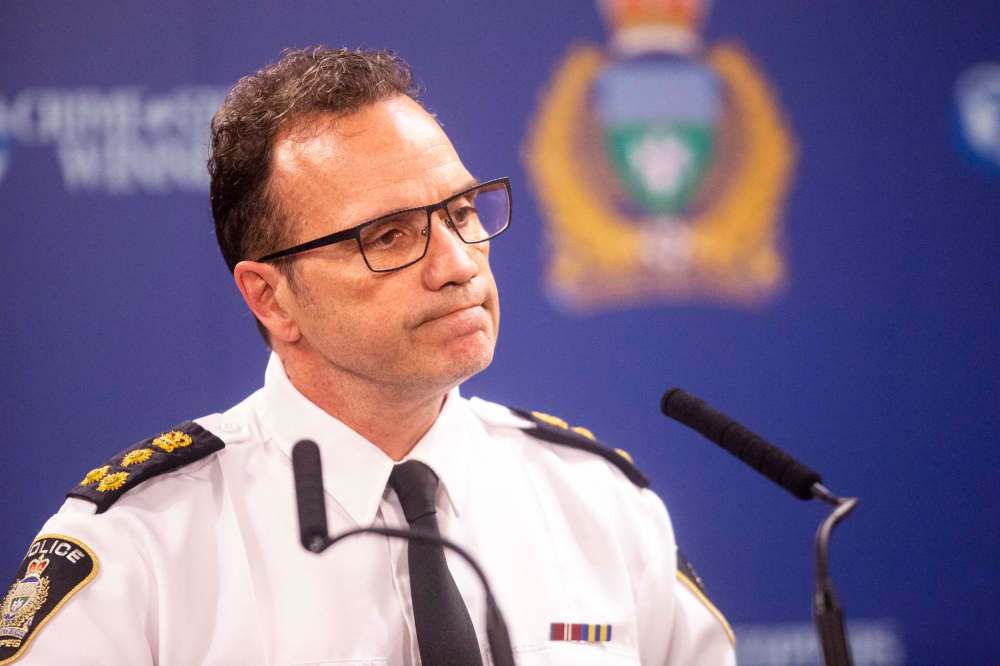
That would mean Manitoba accepts its cash at a time when provincial officials are restricted from announcing any major funding agreements in the lead up to the Sept. 10 provincial election.
Earlier this year, the federal Liberals clashed with the Pallister government over delays in claiming federal funding for items like housing, healthcare and highways.
But unlike those funding allocations, the federal cash for guns and gangs does not require the province to match any of Ottawa’s allotment.
Winnipeg Police Chief Danny Smyth said $1.3 million of the federal cash Manitoba has tapped into so far will go to analysts and equipment to trace and forensically test guns, to determine their source.
“The challenge for us is: Are these guns being stolen from locals? Are they being smuggled from across the border? This is an opportunity for us to source where guns are coming from,” Smyth told the Free Press on Tuesday.
Sousa said police need that support, but he was let down that 95 per cent of April’s announcement sent funds to police and courts, instead of prevention programs. The province had already spent $2.7 million for a public-safety campaign focused on enforcement.
Of the federal funding announced in April for $2.3 million, GAIN received $20,000, while $80,000 went to an intervention program supported by school boards and social workers.
“It was not the greatest situation for us,” said Sousa.
Sousa said his group submitted a $1.3-million proposal, spread out over five years, ranging from tattoo removals to 24-hour access to mentors.
He described it as “any intervention thing you could think of, to support individuals that are trying to exit gangs, or deter them from getting involved in gangs.”
GAIN has previously reported that anywhere from 1,500 to 3,000 Winnipeggers are involved in gangs.
— With files from Aldo Santin
dylan.robertson@freepress.mb.ca
History
Updated on Friday, June 21, 2019 10:48 AM CDT: Fixes headline



